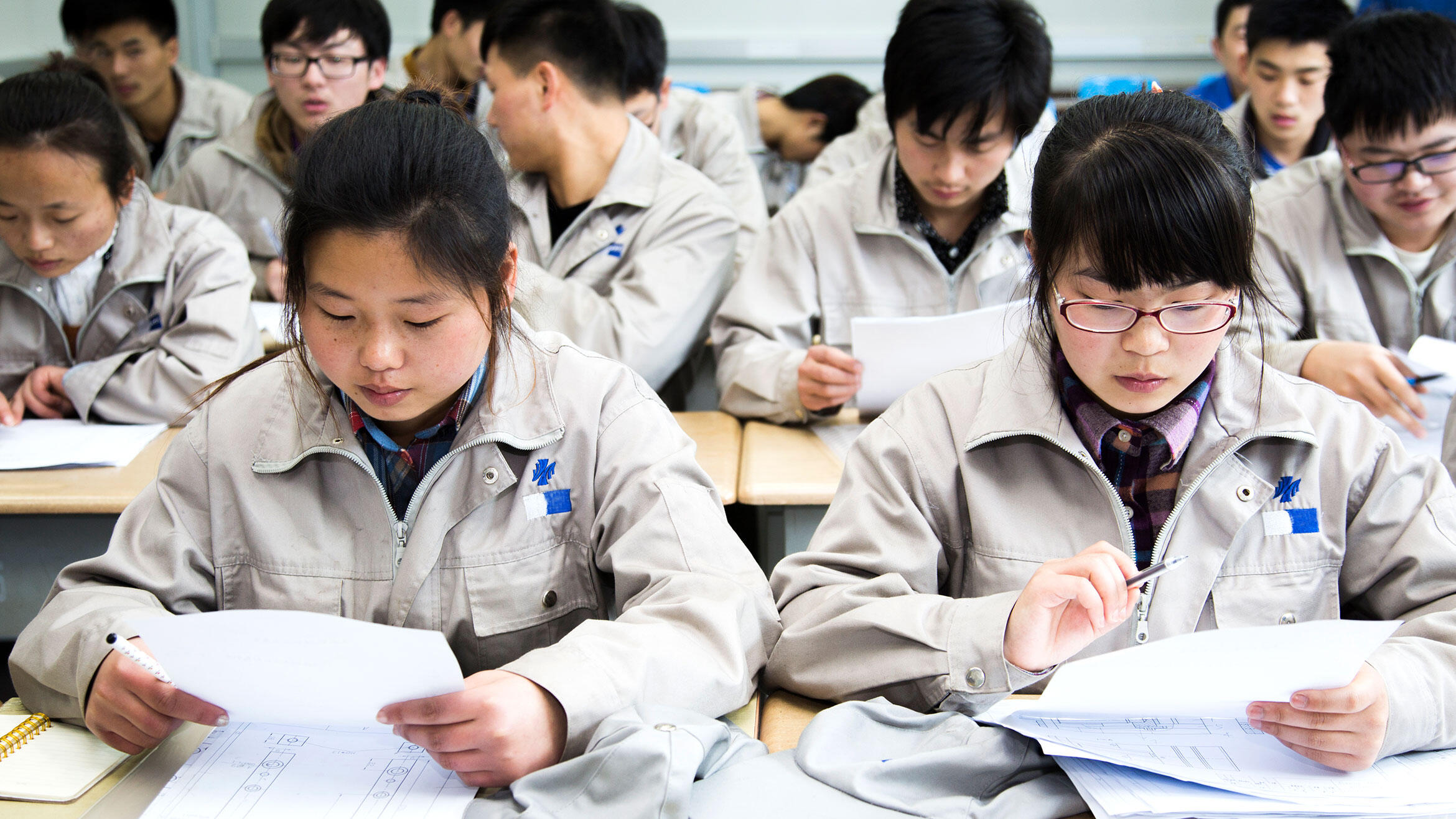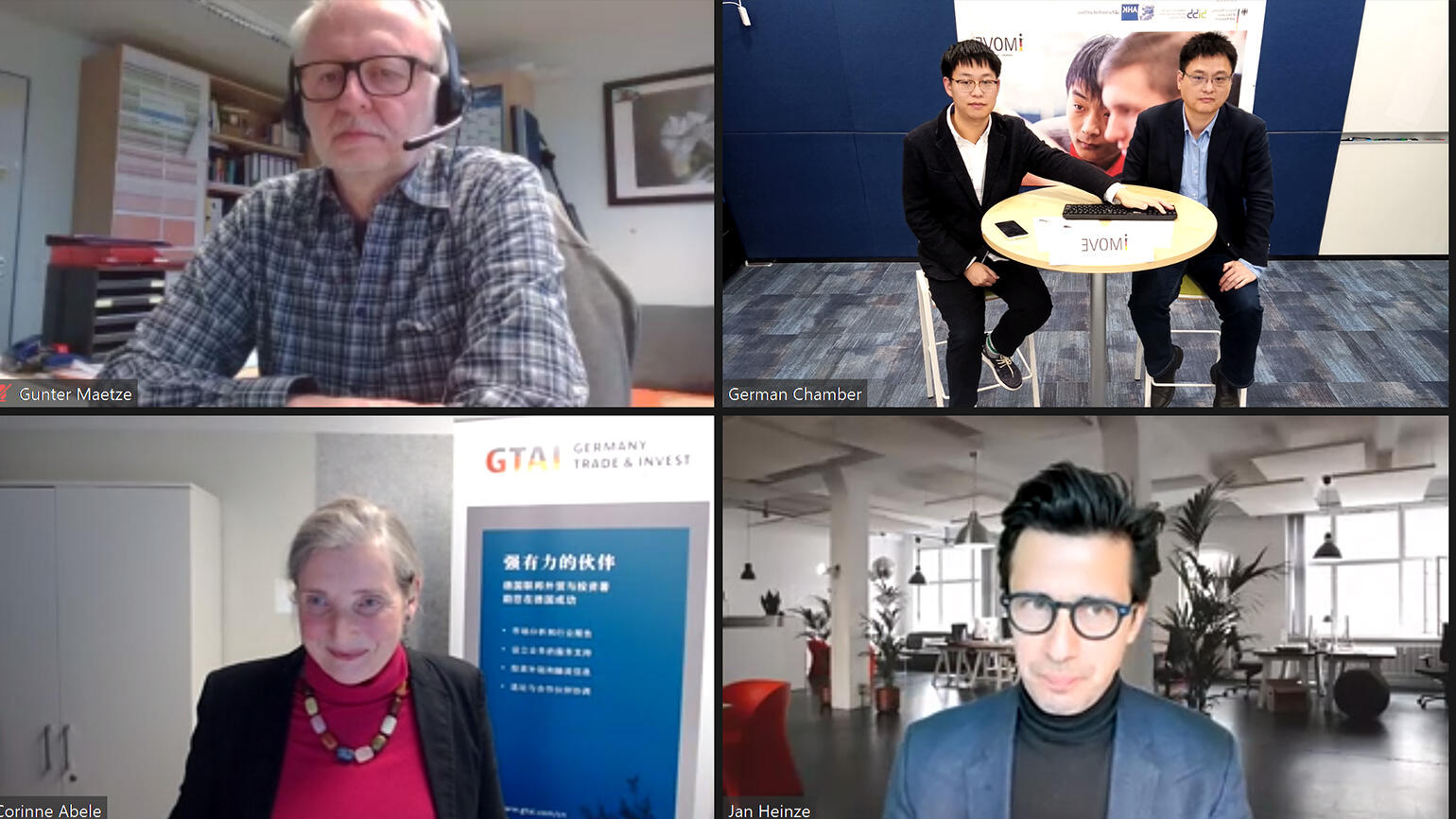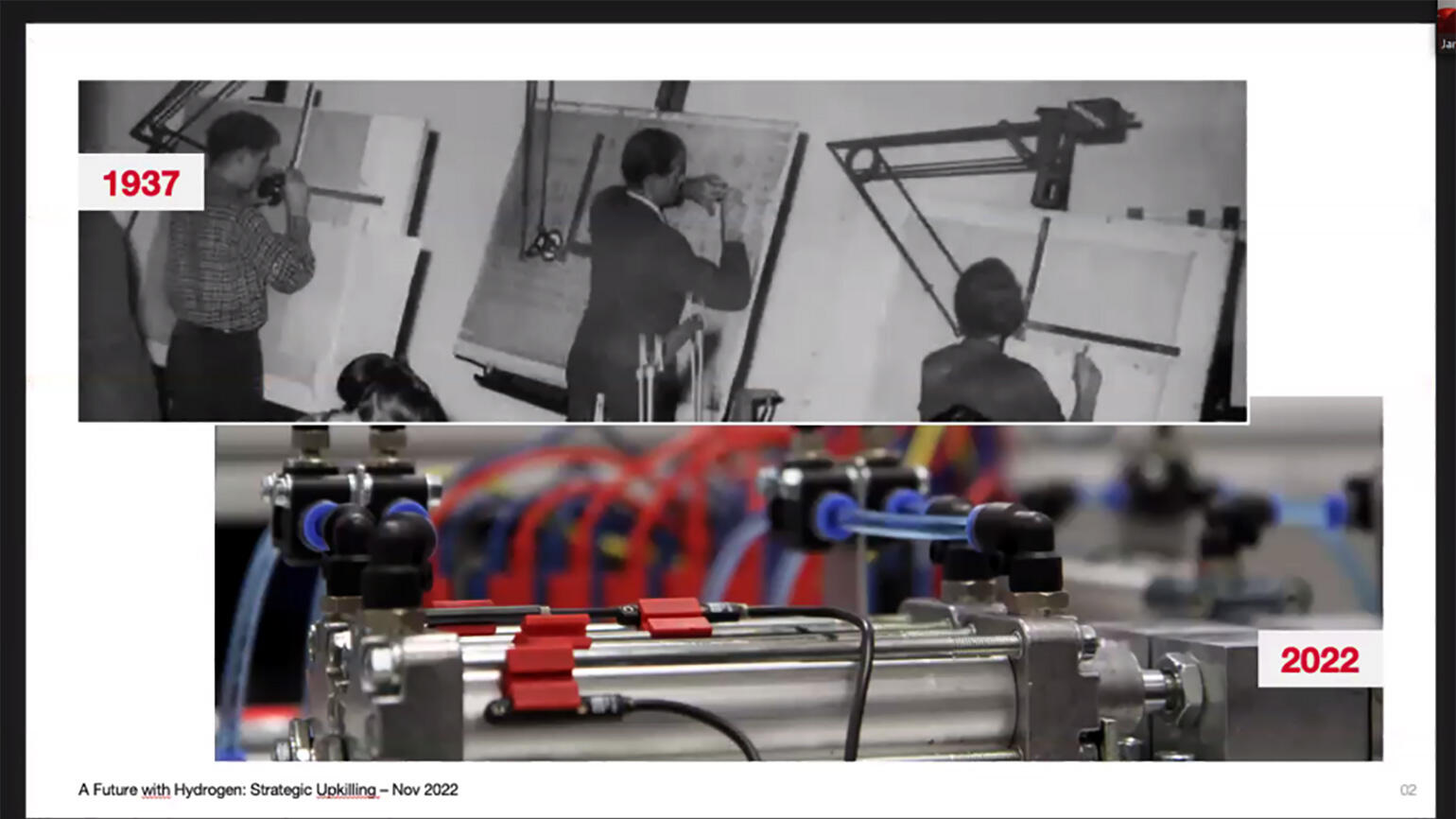Skilled workforce development in China for hydrogen – a key issue for the future
On 1 December 2022, iMOVE and a number of experts presented information to nearly 50 interested parties, mainly from China, concerning vocational education and training (VET) developments in the hydrogen industry in Germany and China.

As well as the input from the experts at the virtual information event, colleagues from the iMOVE contact point in China introduced the contact point’s activities.
Corinne Abele provided an overview of developments in the hydrogen sector in China. Corinne has been Head of Foreign Trade at Germany Trade & Invest (GTAI) in Shanghai since 2014 and has focused on environmental issues in China for more than 20 years.
At present, the hydrogen industry is mainly still limited to grey hydrogen. Green hydrogen comprises just two percent of production. According to Abele, the role played by green hydrogen will not increase until after 2030 – this can be deduced from the Chinese government’s white paper, the medium-term development plan for the hydrogen industry, 2021 to 2035.
New issues in vocational education and training are resulting from the developments in the Chinese hydrogen sector. According to Abele, this will apply to the areas of low-carbon buildings, photovoltaics, hydropower, wind energy, environmental protection, statistics and accounting for carbon emissions, as well as measurement and monitoring.
Gunter Maetze, head of the Ulm Chamber of Crafts and Trades' Education and Training Centre for Innovative Energy Technologies (WBZU) introduced the Chamber's measures for integrating the theme of hydrogen into training and continuing education in Germany. As part of this, he focused in particular on the training courses for skilled workers dealing with hydrogen and the training course entitled "Gasanlagen in Fahrzeugen" (Gas fuel systems in vehicles).
Education and Training Centre for Innovative Energy Technologies (WBZU)
Jan Heinze, Managing Director of Heinze Akademie GmbH – a family business based in Hamburg/Germany with many years of experience in German-Chinese collaboration, explained how the academy is helping to shape structural change by providing innovative hydrogen training.
Heinze introduced, among other things, advanced training modules for hydrogen which the Heinze Academy is offering in cooperation with the Chamber of Industry and Commerce (IHK) and for which the Chamber issues certificates.

above: Gunter Maetze - WBZU (on the left), collegues of the iMOVE Contact point in China (on the right), below: Corinne Abele - GTAI in Shanghai (on the left), Jan Heinze - Heinze Akademie (on the right)
Hydrogen industry in China and Germany
In 2022, the Chinese National Development and Reform Commission and the National Energy Administration of China published the "Medium- and Long-Term Development Plan for the Hydrogen Industry (2021-2035)". The plan states that hydrogen is a component of the future national energy system and that training of skilled workers will be supported as a key measure in establishing a high-quality development and innovation system for the hydrogen industry.
In 2020 and 2021, the German government published the "National Hydrogen Strategy" and the "Hydrogen Action Plan Germany 2021–2025" with proposals for 80 specific measures.
The Federal Institute for Vocational Education and Training (BIBB) has launched two research projects addressing the topic of hydrogen: "Arbeitskräftebedarf und Arbeitskräfteangebot entlang der Wertschöpfungskette Wasserstoff" (Labour demand and supply along the hydrogen value chain) and "Wasserstoff – ein Zukunftsthema der beruflichen Bildung im Kontext der Energiewende" (Hydrogen – a future issue in vocational education and training in the context of the energy transition).
With China having the largest production volume of grey hydrogen and the majority of the world's hydrogen filling stations, and with Germany'sadvantage in VET, the two countries have a broad range of opportunities for cooperation.
